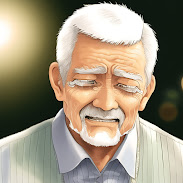Understanding addiction

Understanding addiction requires grappling with its multifaceted nature. While driven by individual choices, addiction can also be influenced by deeper factors, including its potential as a disease and its role as a coping mechanism for managing underlying trauma and emotions. Addiction is a complex issue that encompasses a spectrum of experiences. While it's important to acknowledge the power of personal choice and agency, it's equally crucial to consider the intricate interplay between biology, psychology, and the environment. Addiction can be viewed as a disease, much like other medical conditions. As diabetes or heart disease involves physiological changes, addiction alters brain chemistry and function, impacting decision-making, impulse control, and the brain's reward system. Furthermore, addiction can emerge as a way of managing underlying trauma and challenging emotions. Individuals who have experienced trauma or face emotional distress may turn to substances to esc



